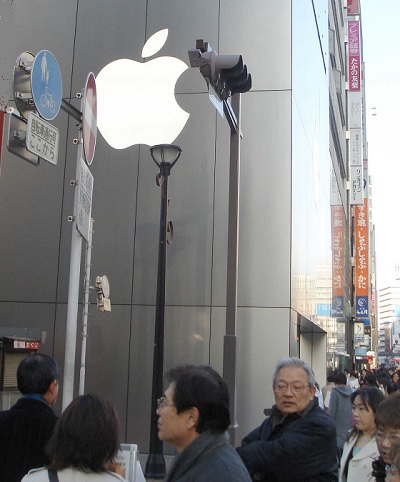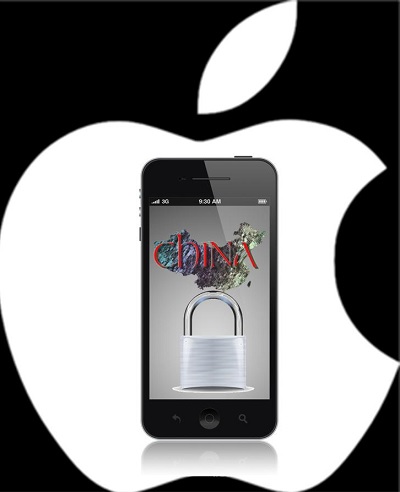Apple launches new service for iOS users in Japan
Apple may be testing its mobile payments platform in Japan. The famed technology company has launched a new service for Japanese iPhone and iPod users. The services is called iTunes Pass and is associated with the iTunes Store, the App Store, and the iBookstore. The service will allow people to use their financial data to pay for products on Apple’s various store platforms. This could be the beginning of a much larger mobile payments initiative from Apple.
Company retains its strong interest in mobile payments and shopping
Apple has had a strong interest in mobile payments for some time. The company has, however, been quite cautious when it comes to entering into the mobile money space. This is due to the large number of similar companies that have fallen prey to the digital threats that exist in the mobile world. Google, for instance, encountered serious security issues with the initial launch of its Wallet platform, which stymied its attraction to those interested in mobile shopping and payments. Apple is keen to avoid such issues.
iTunes Pass is designed as a high tech substitute for physical gift cards
 Currently, the iTunes Pass service is designed to serve as a replacement for physical gift cards. Digital versions of these gift cards can be stored in the Passbook application, which is Apple’s version of a mobile wallet. Gift cards stored in Passbook can be accessed by iTunes Pass, allowing those that own these gift card the ability to use them to purchase goods from Apple’s digital stores.
Currently, the iTunes Pass service is designed to serve as a replacement for physical gift cards. Digital versions of these gift cards can be stored in the Passbook application, which is Apple’s version of a mobile wallet. Gift cards stored in Passbook can be accessed by iTunes Pass, allowing those that own these gift card the ability to use them to purchase goods from Apple’s digital stores.
Rumors suggest that the iPhone 6 will have mobile payments capabilities, but such features are not yet set in stone
Apple has taken a slow approach to the mobile payments space. For the past two years, rumors concerning the company’s entry into the field of digital commerce have largely been centered around new versions of the company’s iPhone device or its iOS operating system. Current rumors suggest that the iPhone 6 will mark Apple’s official entry into the mobile payments arena, but whether or not this will be will the case has yet to be seen.
The country feels that this behavior could lead “state secrets” to be revealed to spies.
The ever growing disagreement regarding mobile security and American spying activities in China has now risen to a new level as Apple has been roped into the battle, with the iPhone being branded as a national security threat by state television media.
This announcement has arrived only a small handful of months after an iPhone deal with China Mobile.
Recently, a U.S. technology group entered into a deal with China Mobile to supply that company with iPhones. China Mobile is currently the largest phone company on the globe and this accomplishment was considered to be a critical step forward in Apple’s efforts to break into the Chinese marketplace of one billion smartphone users in a more meaningful way. However, online and mobile security have become a growing source of tension between the country and the United States and now it looks as though the success of this deal may be threatened.
CCTV has added this mobile security statement to the growing pile of criticisms of brands from outside the country.
 This announcement arrived in the same week that China and the United States brought high level trade talks to a conclusion and were able to take only the slightest progress in updating an agreement that was already a year and a half old regarding the $2 trillion in annual trade of high tech products.
This announcement arrived in the same week that China and the United States brought high level trade talks to a conclusion and were able to take only the slightest progress in updating an agreement that was already a year and a half old regarding the $2 trillion in annual trade of high tech products.
The state broadcaster in China, CCTV, has been steadily boosting its aggression when it comes to the criticism that it has been laying down against brands from other countries. Its latest accusation was regarding the ability of the iPhone to track its user through its geolocation and positioning tech, as well as having the ability to “view the user’s home address, unit information and whereabouts.”
The report from the broadcaster suggested that some of the information released by Edward Snowden, the former contractor from the National Security Agency (NSA) had shown that some of the data that Apple collected through its smartphones was passed on to advertisers as well as American spy agencies. The broadcaster went on to say that this mobile security issue went even deeper because the data could still be recorded regardless of whether the feature was turned on, placing “state secrets” at risk along with this “sensitive” information.
 Currently, the iTunes Pass service is designed to serve as a replacement for physical gift cards. Digital versions of these gift cards can be stored in the Passbook application, which is Apple’s version of a mobile wallet. Gift cards stored in Passbook can be accessed by iTunes Pass, allowing those that own these gift card the ability to use them to purchase goods from Apple’s digital stores.
Currently, the iTunes Pass service is designed to serve as a replacement for physical gift cards. Digital versions of these gift cards can be stored in the Passbook application, which is Apple’s version of a mobile wallet. Gift cards stored in Passbook can be accessed by iTunes Pass, allowing those that own these gift card the ability to use them to purchase goods from Apple’s digital stores.
 This announcement arrived in the same week that China and the United States brought high level trade talks to a conclusion and were able to take only the slightest progress in updating an agreement that was already a year and a half old regarding the $2 trillion in annual trade of high tech products.
This announcement arrived in the same week that China and the United States brought high level trade talks to a conclusion and were able to take only the slightest progress in updating an agreement that was already a year and a half old regarding the $2 trillion in annual trade of high tech products.